We believe that Positive Behaviour Support (PBS) and Applied Behaviour Analysis (ABA) are inherently flawed approaches, and that Neurodivergent people (including people with learning disabilities), along with their families and carers, deserve better.
What is this campaign about?
We know that parents, carers and practitioners want what’s best for Neurodivergent people (including people with learning disabilities). We do not judge anyone who has experienced or used PBS or ABA, but we know that better, more compassionate alternatives exist and deserve greater recognition.
Neurodivergent people deserve better than PBS & ABA.
What are we against?
We are against PBS and ABA being considered the only options, the ‘default approach’. We are against the inadequate research base that props up the reputation and position of PBS, in the face of significant concerns from both professionals and the Neurodivergent community.
We are not against parents, carers or practitioners who have used PBS or ABA, believing in good faith that they are the best (or only) option.
What are we for?
We are for Neurodivergent-affirming therapeutic approaches. We are for considering the needs to the individual, not the societal constructs which they are expected to conform to. We are for compassion, empathy and understanding. We are for listening to the many voices within the Neurodivergent community who have been raising concerns about PBS for decades.
We are for better than PBS and ABA.
Why we’re against PBS & ABA
-
PBS is not designed for Neurodivergent people who do not have a learning disability
-
PBS and ABA are not human rights affirming
-
PBS and ABA are not trauma-informed
-
The dehumanising origin and development of the PBS model
-
The lack of lived experience in the literature
-
Concerns about PBS embedding systemic racism
-
Concerns about the standards, consistency and impact of PBS
-
Concerns regarding the quality of many research studies
-
There are alternatives to PBS that are trauma-informed, Autism-informed and antiracist
Position statement summarising the evidence base on PBS
We are co-authors and signatories of the Culture of Care position statement on PBS, alongside delivery partners the Foundation of Nursing Studies (FONS), Black Thrive Global and the National Confidential Inquiry into Suicide and Safety in Mental Health (NCISH) and lead delivery partner, the National Collaborating Centre for Mental Health (NCCMH).
An easy-read version of the position statement will also be available from June 16th
Endorsed by
Add your voice to our campaign
alternatives to PBS and ABA
Time to ditch the carrot and stick
-
Designed to address the unique needs of Autistic individuals, particularly within healthcare settings but the framework would work well across other sectors, including education.
-
Designed to support Autistic young people by integrating insights and partnership work with Autistic young people, in addition to drawing on various established models.
-
A guide to promote Autistic-led, autonomy-focused care for both children and adults in all care settings, including institutional environments.
Further reading from our blog
our position
What about PBS and ABA for people with learning disabilities?
We believe that many of the concerns around PBS and ABA that apply to Autistic people are also relevant to those with learning disabilities.
Concerns include that the approach does not inherently support human rights, that there is huge variation in quality and design of delivery, and that this approach may be adding to harm, trauma, and distress. There are also significant concerns about the quality of many research studies (Pukki et al).
Whilst there is, arguably, a stronger evidence base supporting the effectiveness of PBS for people with learning disabilities, it is concerning that in over 40 years of practice, there still isn't clarity on what people with learning disabilities think about this and how they experience PBS.
Our collective goal should be improving life experiences and well-being for all Neurodivergent people (including those with learning disabilities), not modifying behaviours to fit normative expectations.
EASYREAD RESOURCES
Explore our EasyRead guide and video resources to learn more about our campaign
We are proud to be working with Learning Disability England (LDE)
We are working together to make sure people with learning disabilities, their families and paid supporters can have their say on PBS & ABA.
If you are a member of Learning Disability England, you can explore the following ways to engage with our campaign:
-
Learning Disability England are running a dedicated survey for their members to gather experiences of PBS, to help decide what they will do next.
If you are a member of Learning Disability England with experiences of PBS to share, you can find out more and have your say by following the link below:
-
On Wednesday 30th July 2025, 1.30pm - 3.00pm, Neurodiverse Connection will join Learning Disability England representatives and their members to talk about their experiences of PBS.
This virtual members meeting is part of Learning Disability England's work to understand what members think about PBS and our campaign 'AGAINST PBS & ABA'.
This meeting is for Learning Disability England and their members to share experiences and understand more about what has worked or not worked for people. There will be space for listening and asking questions and it is important that it is a safe space to have different opinions.
To attend this Zoom meeting, you need to be a Learning Disability England member and must book a ticket.
NdC original resource
Guide to PBS and ABA
for professionals, parents
and caregivers
Additional PBS & ABA resources from our library
FAQs
-
“Positive behavioural support is a multicomponent framework for (a) developing an understanding of the challenging behaviour displayed by an individual, based on an assessment of the social and physical environment and broader context within which it occurs; (b) with the inclusion of stakeholder perspectives and involvement; (c) using this understanding to develop, implement and evaluate the effectiveness of a personalised and enduring system of support; and (d) that enhances quality of life outcomes for the focal person and other stakeholders.”
1 Gore, N. J., McGill, P., Toogood, S., Allen, D., Hughes, J. C., Baker, P., ... and Denne, L. D. (2013). Definition and scope for positive behavioural support. International Journal of Positive Behavioural Support, 3(2), 14-23
-
“At its core, ABA is the practice of utilizing the psychological principles of learning theory to enact change on the behaviors seen commonly in individuals diagnosed with ASD (Lovaas et al., 1974). Ole Ivar Lovaas produced a method based on the principles of B. F. Skinner’s theory of operant conditioning in the 1970s to help treat children diagnosed with ASD (or “autism” at the time) with the goal of altering their behaviors to improve their social interactions (Lovaas et al., 1973; Skinner, 1953; Smith & Eikeseth, 2011).”
Gitimoghaddam M, Chichkine N, McArthur L, Sangha SS, Symington V. Applied Behavior Analysis in Children and Youth with Autism Spectrum Disorders: A Scoping Review. Perspect Behav Sci. 2022 May 18;45(3):521-557. doi: 10.1007/s40614-022-00338-x. PMID: 36249174; PMCID: PMC9458805.
-
Behaviourism was founded on the belief that only externally observable behaviours count, and that thoughts and feelings (‘private events’ or ‘inner variables’) are not always relevant to how to control behaviour.
Cooper, J. O., Heron, T. E., and Heward, W. L. (3rd Ed. Global Ed. 2020). Applied Behavior Analysis. Pearson Education.
-
Although BILD state that ‘PBS and ABA are not the same thing’ (2022). Gore et al. (2022) and MacDonald (2016) note that Positive Behaviour Support is founded on, and still underpinned by, the principles of Applied Behaviour Analysis.
PBS has attempted to avoid the punishment procedures which are more common in ABA and has been more open to collaboration with a wider variety of professionals. Johnston et al. (2006:38) described PBS as ‘…a watered-down or less technical version of ABA, more marketable to service providers without ABA training as it requires less technical expertise, which is less robustly evaluated and involves less vigorous training.’ MacDonald also notes that ‘…when the implementation of PBS is described, it is very difficult to differentiate it from ABA.’
Johnston, J. M., Foxx, R. M., Jacobson, J. W., Green, G., and Mulick, J. A. (2006). Positive behavior support and applied behavior analysis. The Behavior Analyst, 29, 51-74.
-
Applied Behaviour Analysis (ABA) and Positive Behaviour Support (PBS) are approaches that focus on modifying outward behaviours to conform to societal norms. These behaviourist-based approaches do not adequately consider the preferences, needs, or consent of Neurodivergent people.
They often don’t seek to understand the underlying reason, motivation, or internal experiences (emotions, sensations, and thoughts) of the individual. This dehumanises the person and leads to masking behaviours and suppression of natural and healthy Neurodivergent traits, such as stimming. This suppression can cause intense distress, and trauma and negatively impact wellbeing. By focusing on supressing the behaviour of individuals ABS and PBS fails to address the systemic and societal barriers Neurodivergent individuals face.
The International Journal for PBS (Gore et al 2022) state that:
“PBS … is not intended for persons identifying as neurodivergent who do not have a learning disability.”
-
Arguably, there is a stronger evidence base about the effectiveness of PBS for people with learning disabilities. However, it's concerning that in over 40 years of practice, there still isn't clarity on what people with learning disabilities think about this and how they experience PBS. There are also significant concerns about the quality of many research studies (Pukki et al).
We believe that many of the concerns that apply to Autistic people are also relevant to people with a learning disability. Concerns include that the approach is not inherently human rights supporting, that there is huge variation in quality and design of delivery, and that this approach may be adding to harm, trauma, and distress.
Our collective goal should be to improve life experiences and well-being, not modify behaviours to fit normative expectations.
Pukki, H., Bettin, J., Grey Outlaw, A., Hennessy, J., Brook, K., Dekker, M., Doherty, M., Shaw, S. C. K., Bervoets, J., Rudolph, S., Corneloup, T., Derwent, K., Lee, O., Garcia Rojas, Y., Lawson, W., Vidal Gutierrez, M., Petek, K., Tsiakkirou, M., Suoninen, A., Minchin, J., Döhle, R., Lipinski, S., Natri, H., Reardon, E., Villarreal Estrada, G., Platon, O., Chown, N., Satsuki, A., Milton, D., Walker, N., Roldan, O., Herrán, B., Limón Cañedo, C., McCowan, S., Johnson, M., Turner, E. J., Lammers, J., & Yoon, W. (2022). Autistic perspectives on the future of clinical autism research. Autism in Adulthood, 4(1), 1-12. https://doi.org/10.1089/aut.2022.0017
-
PBS and ABA are often presented as effective interventions, so it is crucial to understand the concerns raised by many Neurodivergent individuals, advocates, and researchers.
PBS, ABA, and other radical behaviourist approaches may seem helpful and like they ‘work’ but often prioritise compliance and behaviour modification over the holistic well-being and autonomy of Neurodivergent individuals and embed masking behaviours. There is not an evidence base to support their use, and application for Neurodivergent individuals is not best practice.
Many Neurodivergent adults report negative experiences with these methods, emphasising the need for alternatives that respect their diversity.
-
Compassionate and neurodiversity-affirming alternatives to ABA and PBS prioritise the well-being, autonomy, and individuality of Neurodivergent people. They are informed by Neurodivergent voices, and culture and presume competence, taking a strengths-based approach and tailoring support to individuals' needs. These alternatives create a supportive and respectful environment which honours individual goals, milestones, needs, and strengths, instead of enforcing conformity.
Approaches which are relationship-based, person-centred, regulation-focused, and trauma-informed, and prioritise sensory-friendly and low-arousal environments, like the SPACE framework, NEST approach, and the National Autistic Taskforce's Key Principles of Quality Care for Autistic People, foster dignity, trust, and empowerment. By choosing compassionate and neurodiversity-affirming, respectful alternatives, professionals can support Neurodivergent individuals to authentically thrive while cultivating a sense of self-worth, acceptance and belonging.



































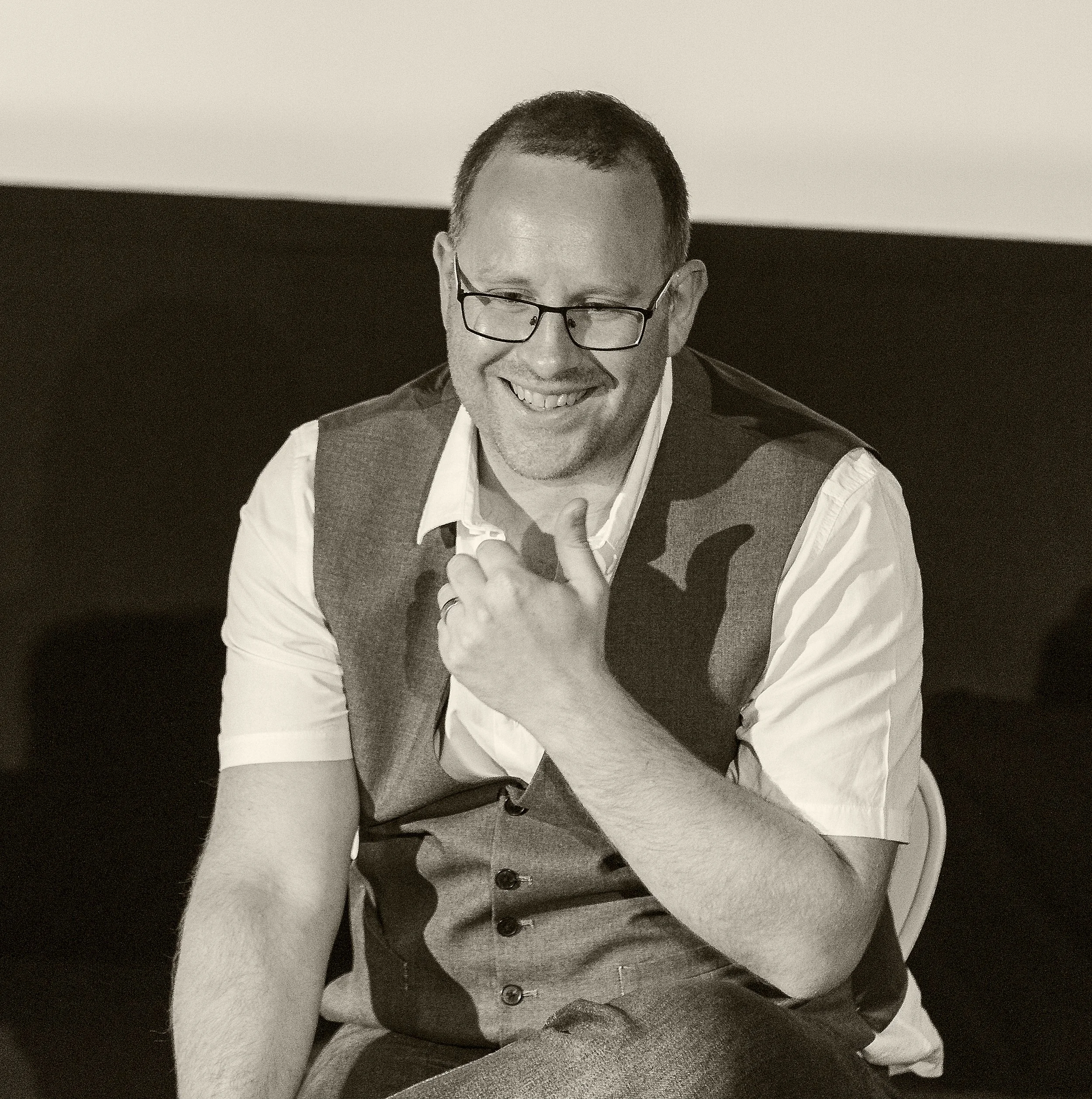

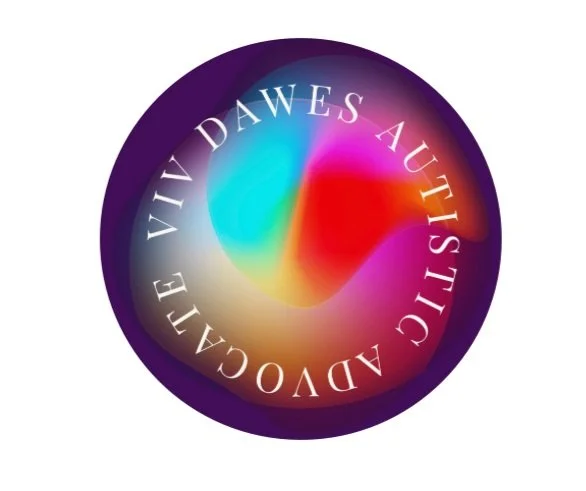




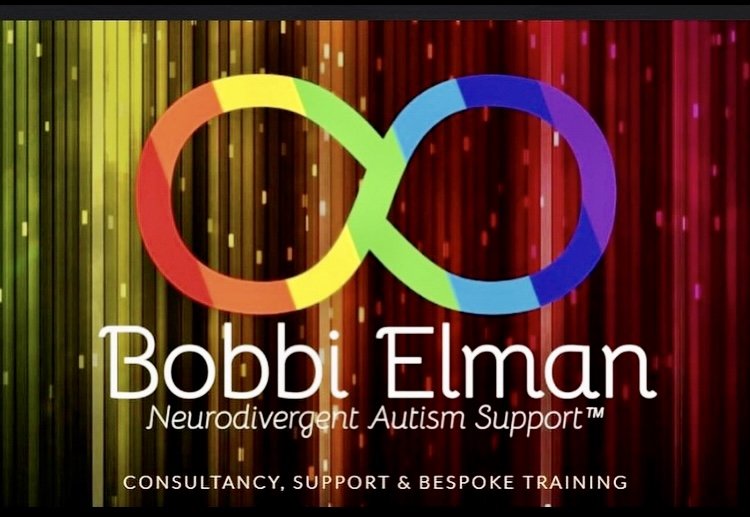





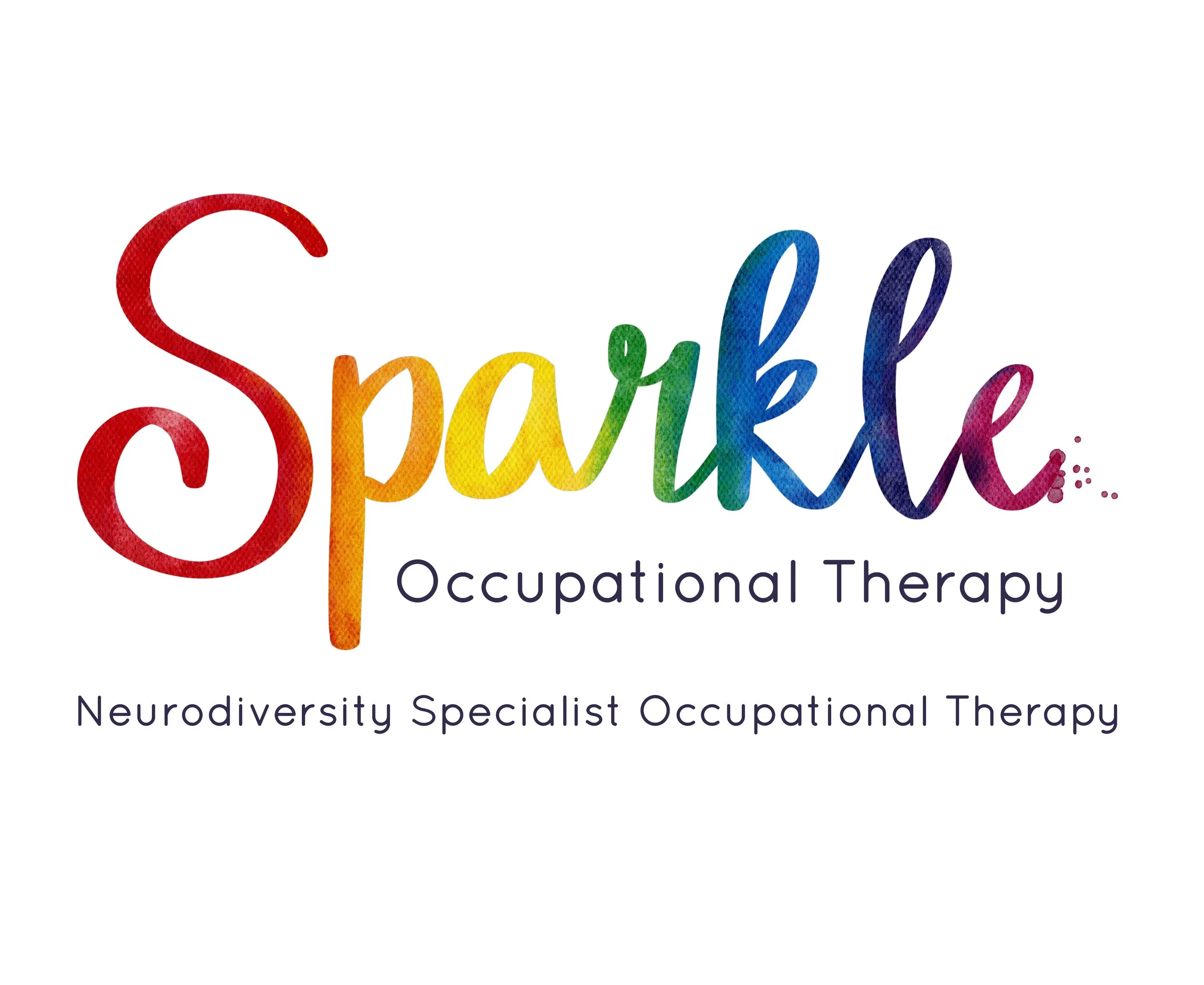







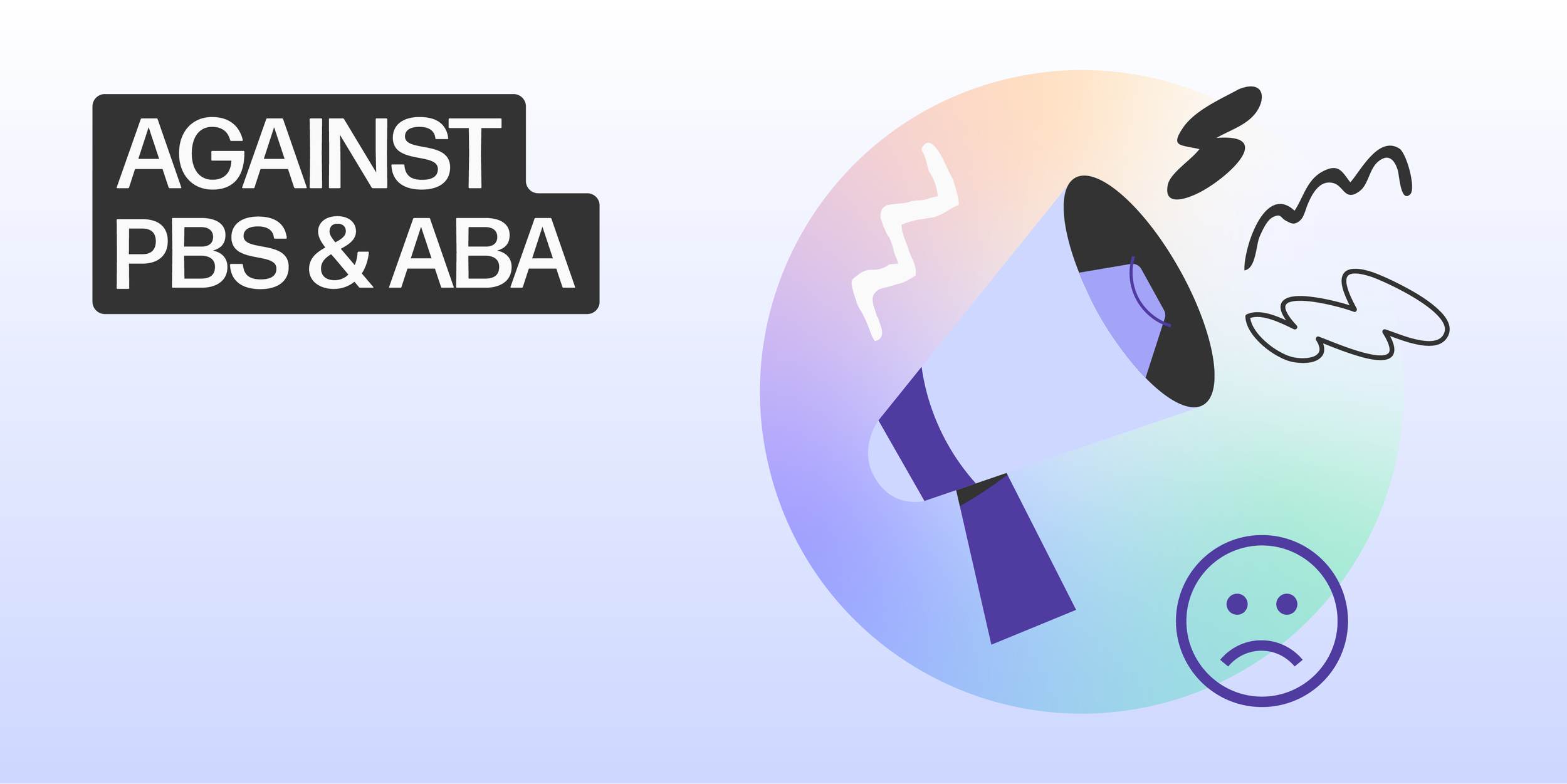





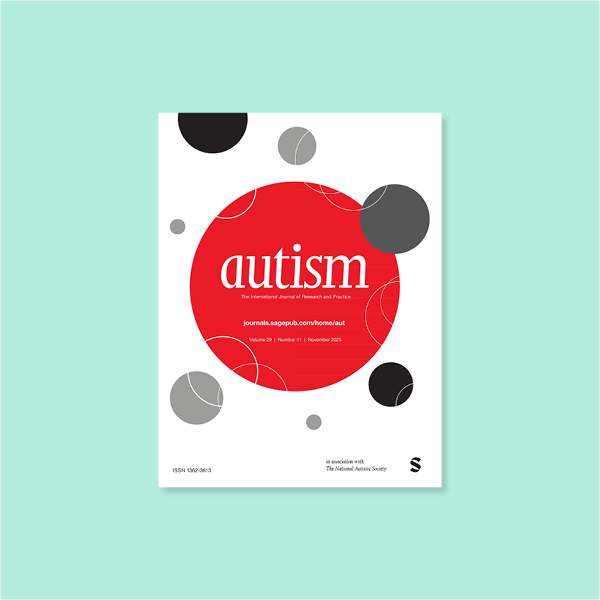





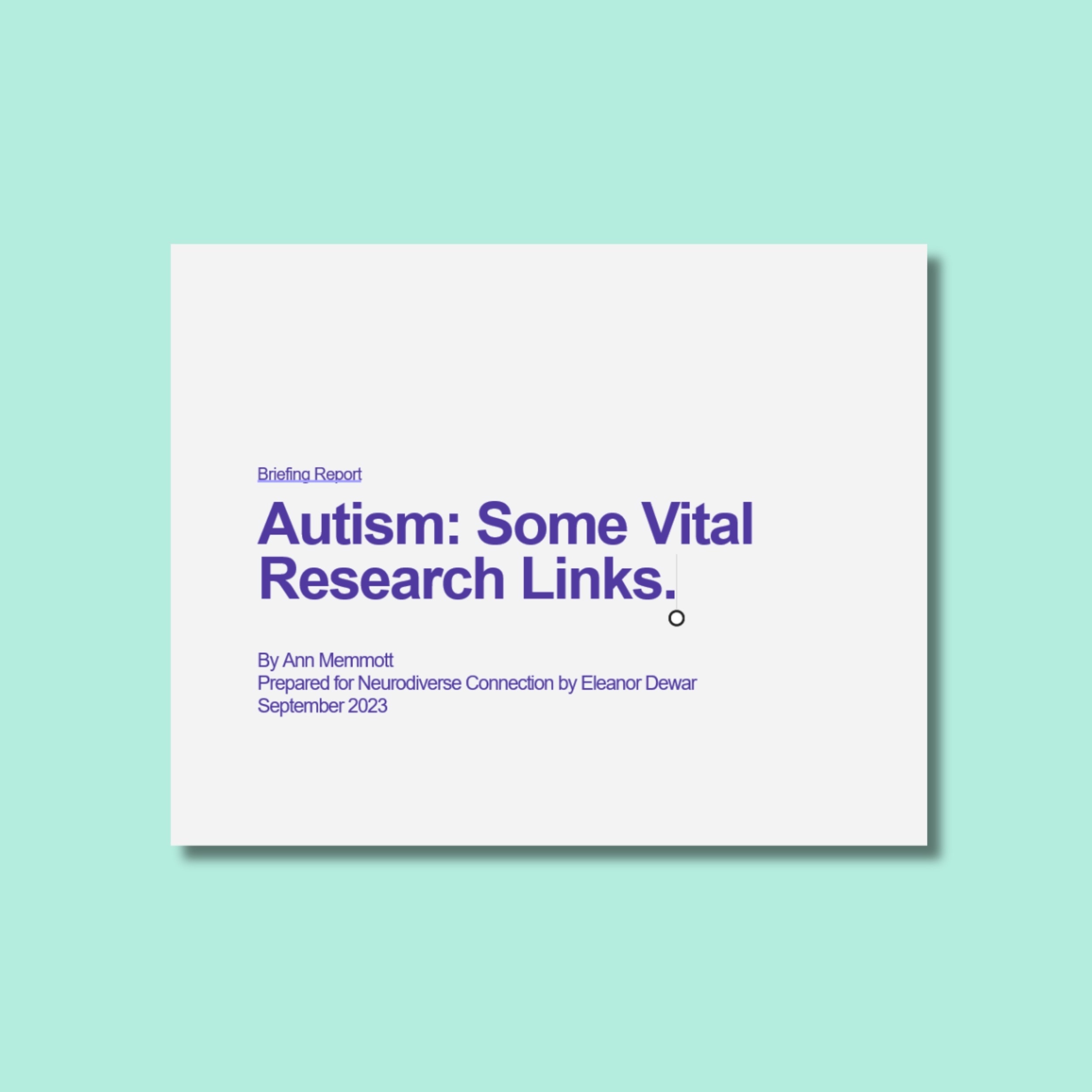

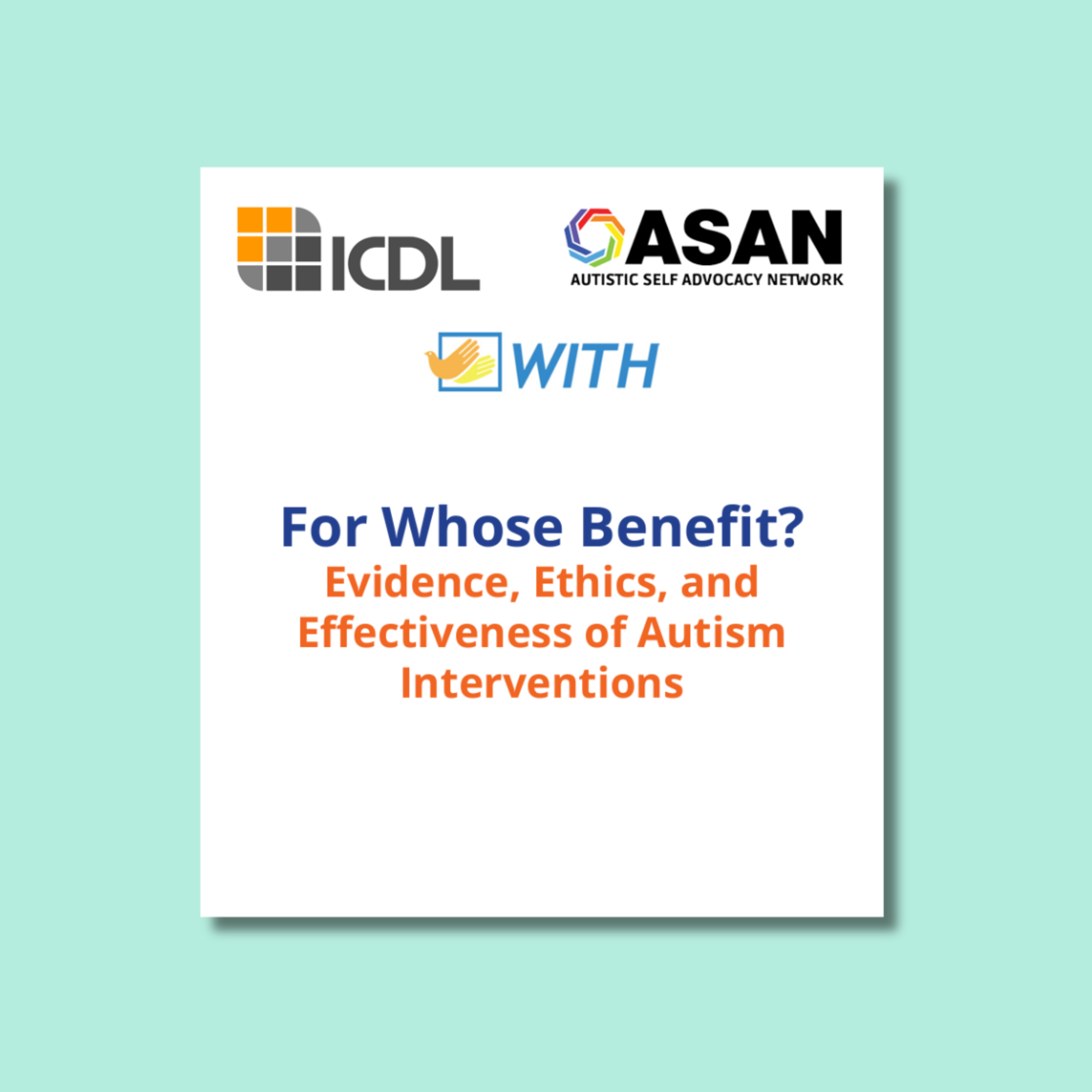


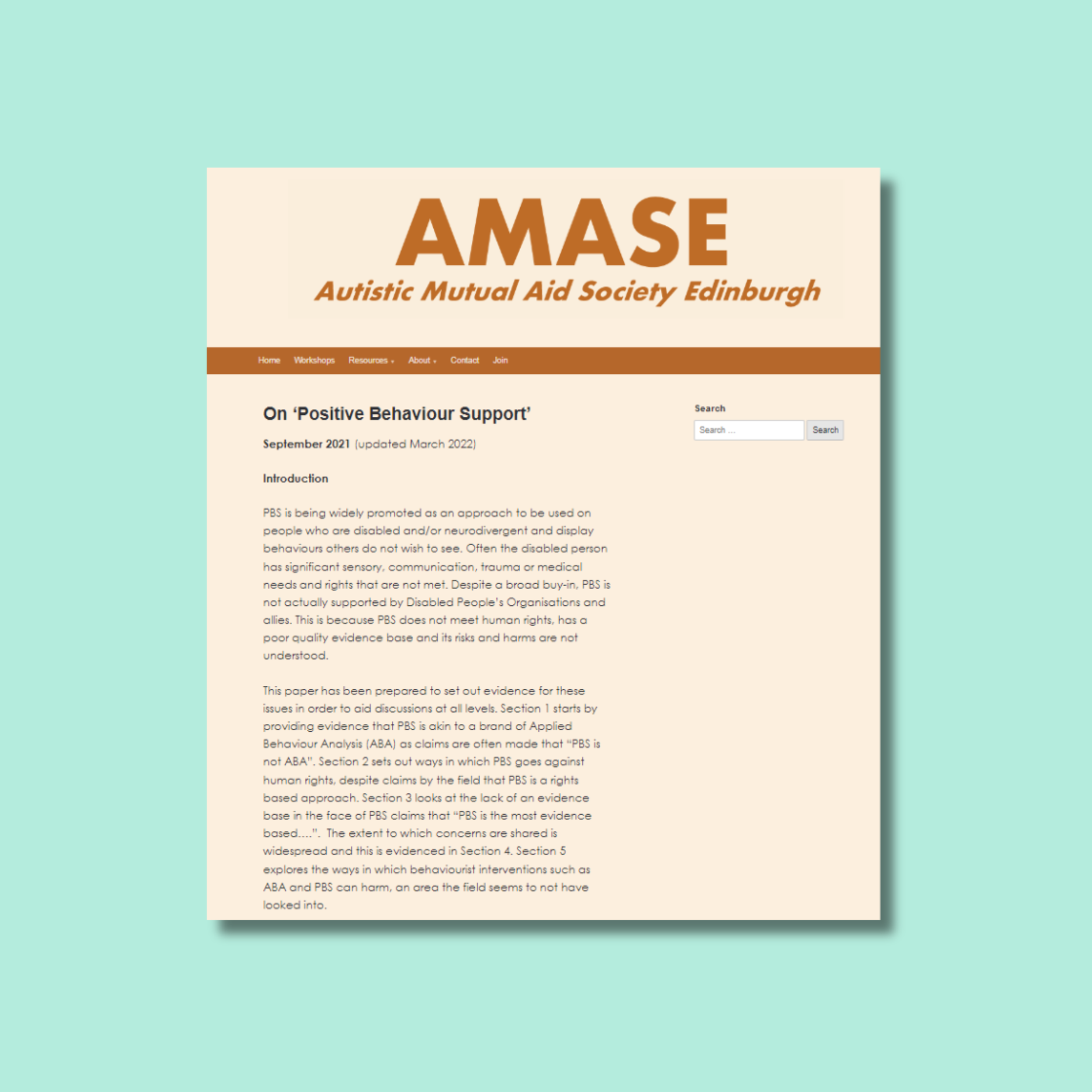
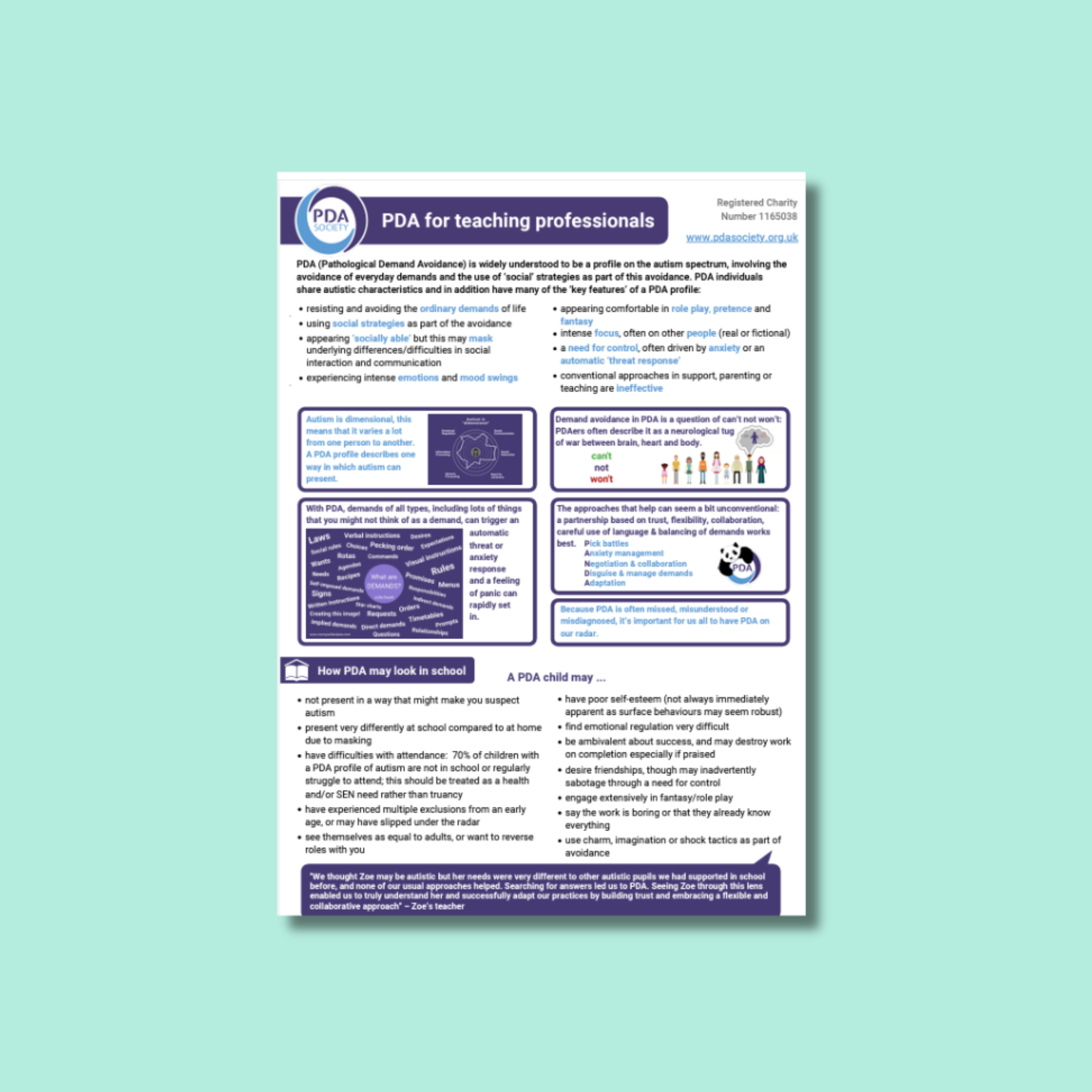
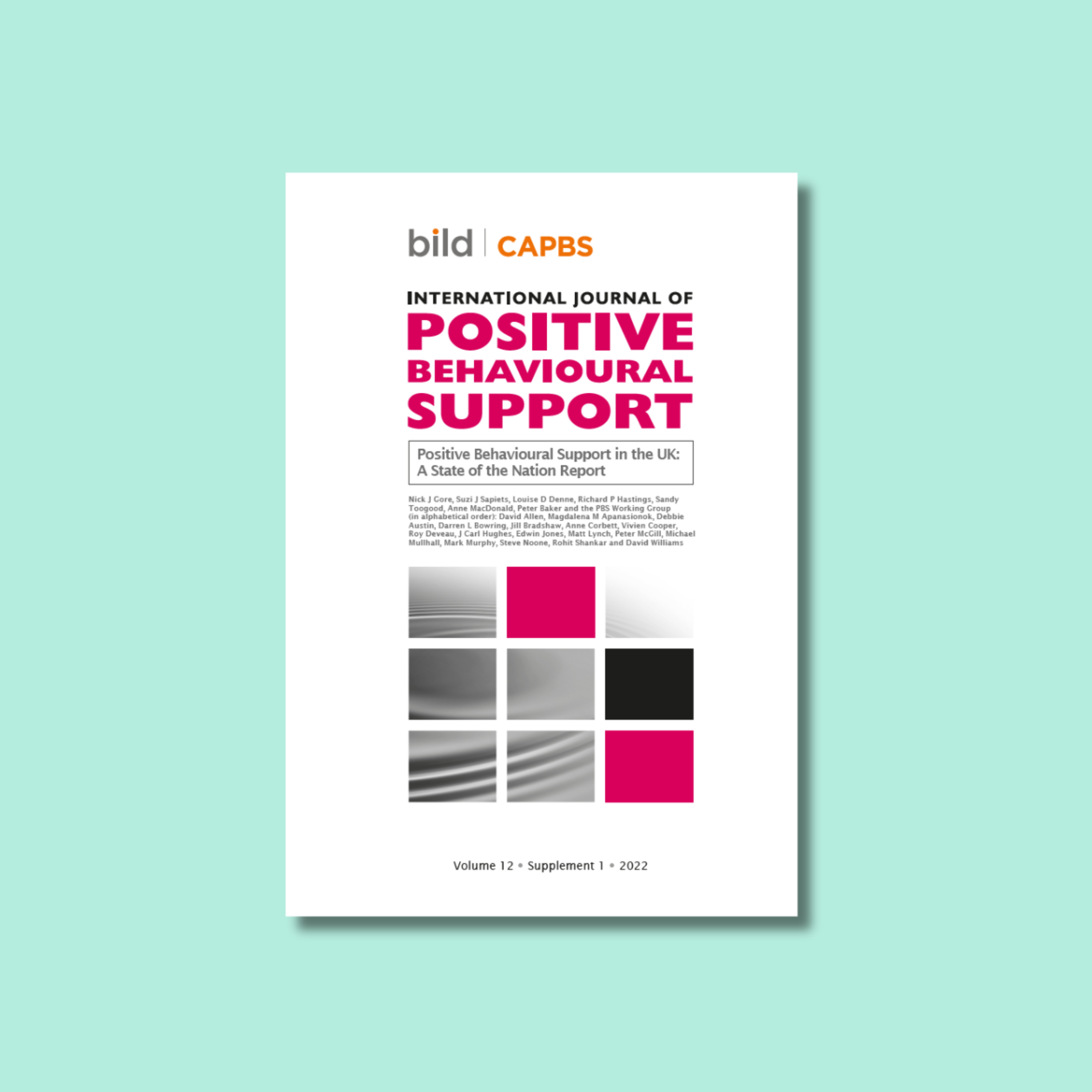


In this month’s research roundup, Ann Memmott explores a wide range of new studies on Autism, ADHD, dyslexia and dyspraxia. Topics covered include measuring Autistic burnout, photography as therapy for Autistic young people and dyslexia research priorities according to dyslexic people, plus reflections on how to navigate misleading stories in the press about Neurodivergence.